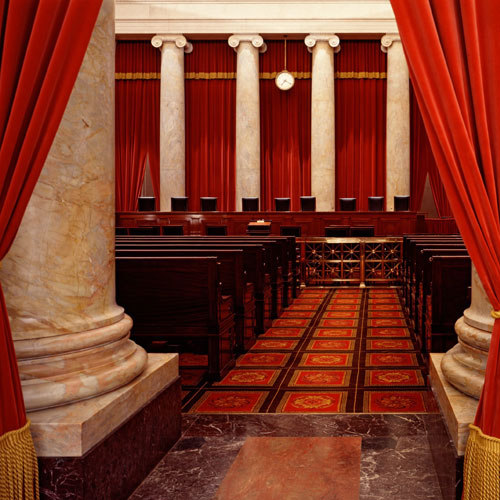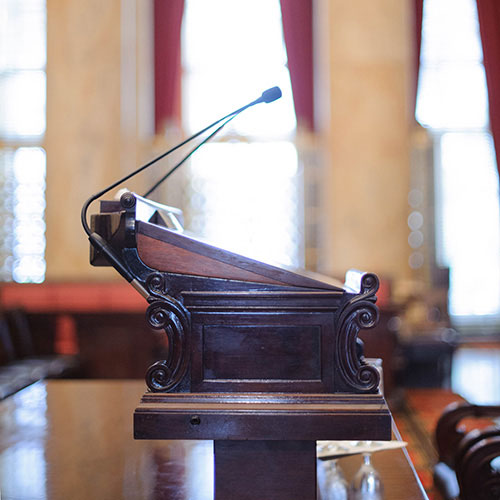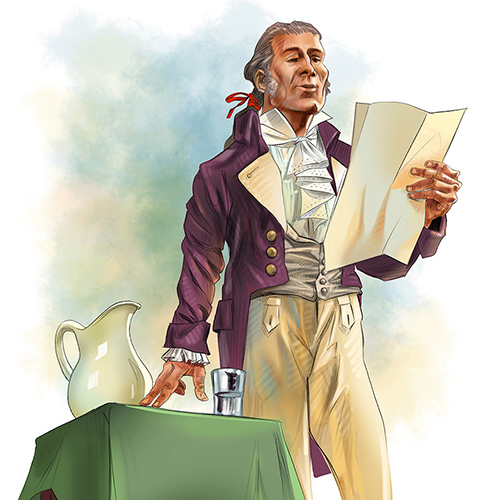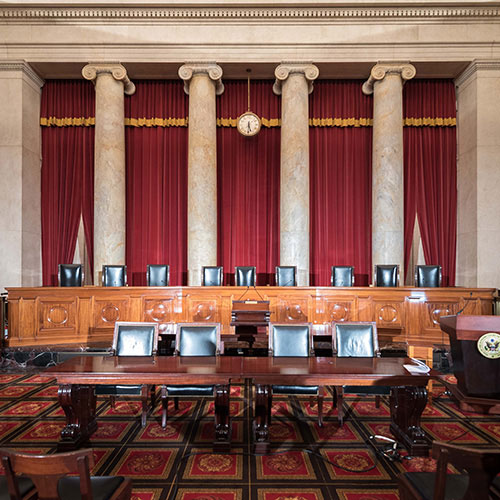By Clare Cushman
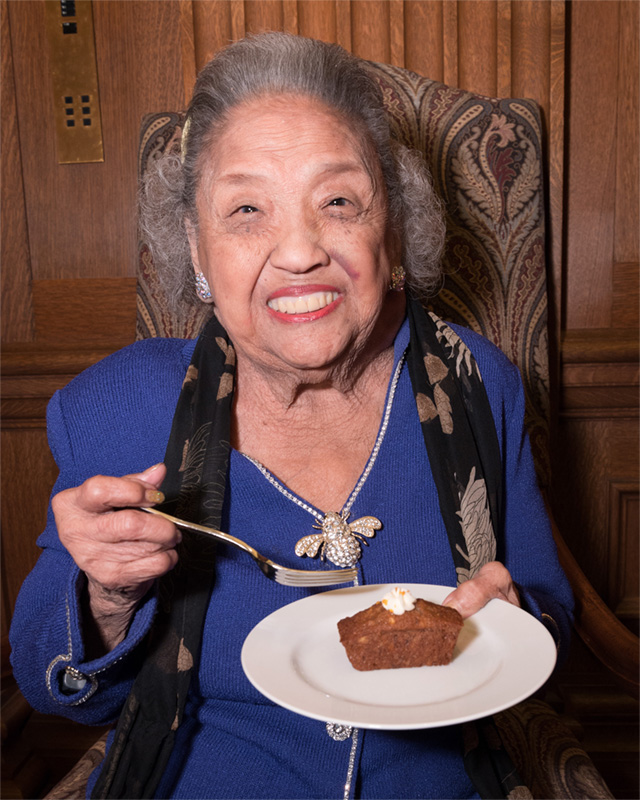
Cecilia Suyat Marshall was 4 foot 11 and could light up an entire room with her lively presence and joyful sense of humor. “Cissy,” who died on November 22, 2022, at the age of 94, will be remembered as the devoted wife of Thurgood Marshall, who served on the Supreme Court from 1967-1991, and the steward of his legacy after his death in 1993. But she was so much more: a mother, a grandmother, a stalwart at spouse luncheons at the Court, a talented cook, a devoted churchgoer, a member of the National Capital Lawyer’s Auxiliary, and a board member of both Traveler’s Aid Society and the NAACP Legal Defense Fund. She was also a faithful member of the Society’s Executive Committee, and we are grateful for her longtime support as an active Vice President. According to Executive Director Jim Duff: “Cissy Marshall exuded joy. She treated everyone, regardless of position, with the utmost kindness and respect, and I was blessed to have experienced that first hand over the past 47 years. She also brought energy and integrity to every endeavor and every occasion. She will be greatly missed by the Society and everyone who knew her.”
Cissy Marshall should also be remembered for her vital supporting role in the Civil Rights Movement. How she got involved was happenstance. Born in Maui to parents who had emigrated from The Philippines, she made her way to New York in 1948 and enrolled in stenography night school at Columbia University. She loved New York and looked for a job so she could stay. A clerk at the employment office sent her to the NAACP because of her dark skin. Growing up in a multicultural community in Hawaii she had been unaware of the systemic racism faced by Black Americans. “I learned a lot for myself,” working at the NAACP, she recalled in a 2003 interview with the Smithsonian. “I feel blessed to have been at the organization at that time…my guardian angels were looking out for me.”
Cissy served as legal secretary to Dr. Gloster B. Current, who oversaw some 15,000 NAACP branches around the country. When “local people” needed help they called the branch department in New York and were greeted by her warm voice on the phone. “We tried to solve [their] problem as much as we could before taking it to the board of directors.” Her heart went out to these members who were battling injustice and she admired their courage. “The local people [in the South] put their names on the briefs, they stayed there and met daily opposition, hostile people. They are the real heroes in the civil rights fight.” She recalled wryly that Thurgood Marshall always said that he and the other defense lawyers were “cowards” who took the first train or plane out of town once the case was over. Cissy occasionally accompanied the lawyers on trips to the South, providing shorthand skills and working with local counsel. “I got to know a lot of the local people in the South especially when we couldn’t stay in hotels, they took us in their private homes and fed us and treated us like kings.” She recalled “the sacrifices, the indignities” they endured to overcome racial injustice. They were “wonderful people.” She recorded the minutes at the NAACP national conventions in places like Atlanta, Oklahoma City, and Chicago. She occasionally worked on legal cases when there was extra need for stenographic help, such as with Brown v. Board of Education. The work was relentless but the camaraderie at the New York headquarters was strong. “It was like a family. After work we went out to dinner.” And that is how she got to know Thurgood Marshall, who was head of the NAACP Legal Defense and Education Fund.
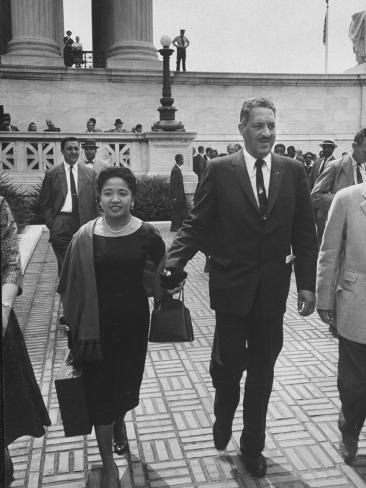
After they married in 1955 she stopped working. The couple had two sons: Thurgood, Jr and John W. Marshall. “With Thurgood being away a lot I made it a point to stay home with the children.” They moved to Washington in 1961 (settling in Falls Church, VA) when LBJ appointed her husband Solicitor General. She was always “careful” to avoid conflicts of interest. “I had to cut out a lot of my friends…because of the cases involved.”
Looking back on her life Mrs. Marshall mused: “having my deep faith in God is what got us through.” She was also modest about her contributions: “I’m just an ordinary person…. [who has] lived a charmed life.” In addition to her sons, she is survived by four grandchildren and three great-grandchildren.
Note: Quotes by Mrs. Marshall are from an oral interview conducted by Emilye Crosby, July 30, 2013, Civil Rights History Project, a joint project of the National Museum of African American History and Culture and the Library of Congress.
